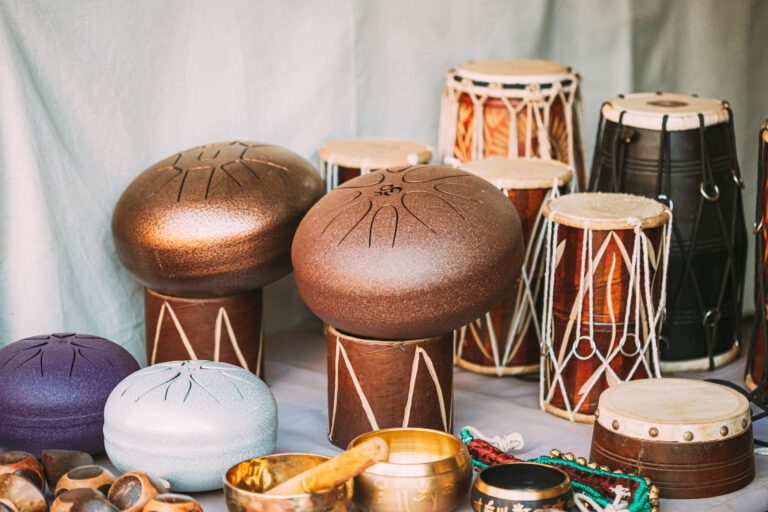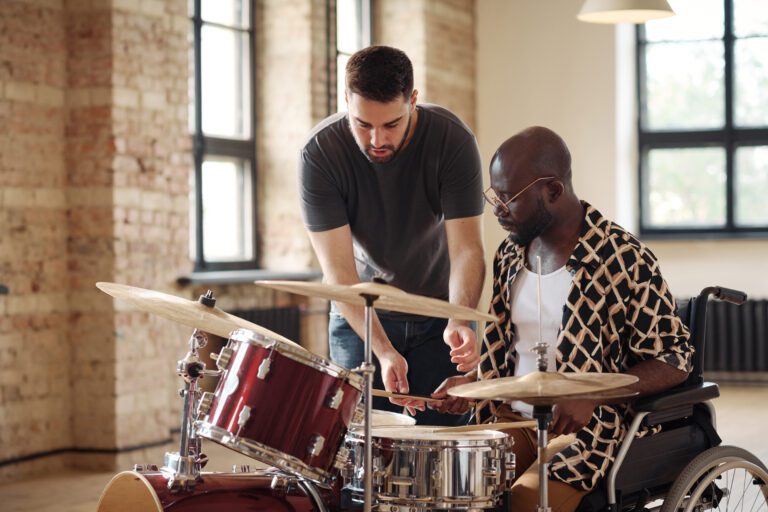Can you teach yourself to play drums?
Learning to play drums is an exciting journey that combines rhythm, coordination, and creativity. While traditional drum lessons with a teacher can offer structured guidance, many aspiring drummers wonder: can you teach yourself to play drums? The answer is a resounding yes! With the right resources, dedication, and practice techniques, you can become a skilled drummer on your own. Here’s a detailed guide to help you get started.
1. Set Clear Goals

Before you begin, identify your goals as a drummer.
Are you interested in playing casually for fun?
Do you want to join a band or play live?
Are you aiming to learn specific drumming styles like rock, jazz, or funk?
Clear goals will help you focus your efforts and choose appropriate learning resources.
2. Start with the Basics

To teach yourself effectively, you must first understand the fundamentals of drumming.
Learn the Drum Kit
Familiarize yourself with the components of a standard drum kit:
Bass Drum: Played with a foot pedal to create a deep, booming sound.
Snare Drum: Produces a sharp, cutting sound and is used for backbeats.
Toms: Cylindrical drums that provide melodic fills.
Hi-Hat: Two cymbals operated by a foot pedal, offering a range of sounds.
Crash and Ride Cymbals: Used for accents and sustained rhythms.
Understand Drum Notation
Drum notation helps you read and play rhythms accurately. Learn basic note values (quarter notes, eighth notes) and understand how different drums and cymbals are represented in sheet music.
Basic Techniques
Master essential techniques such as:
Proper grip for drumsticks (matched or traditional).
Basic strokes like single, double, and paradiddle.
Foot techniques for the bass drum pedal.
3. Create a Practice Routine

Consistency is key to learning any instrument. Dedicate at least 20-30 minutes daily to drumming, gradually increasing your practice time.
Warm-Up Exercises
Begin each session with warm-up exercises to improve hand and foot coordination. Simple patterns like alternating strokes (RLRL) or foot tapping help build control.
Practice Beats and Fills
Start with simple drum beats, such as the basic 4/4 rock beat. As you progress, experiment with drum fills to add variety and dynamics to your playing.
Use a Metronome
A metronome helps you maintain consistent timing, which is crucial for drumming. Start slow and gradually increase your speed as you gain confidence.
4. Leverage Online Resources
The internet offers a wealth of free and paid resources for self-taught drummers.
YouTube Tutorials
Watch tutorials from professional drummers to learn techniques, beats, and songs. Channels like Drumeo and Stephen Taylor are excellent for beginners.
Drum Apps
Apps like Drum School and Simple Drummer provide lessons, exercises, and play-along tracks to improve your skills.
Sheet Music and Play-Along Tracks
Download sheet music or drum tabs for your favorite songs. Playing along with tracks helps you develop timing, rhythm, and musicality.
5. Play Along with Songs
One of the best ways to learn drums is by playing along with your favorite music. Start with songs that have simple beats and gradually move to more complex tracks. Focus on matching the tempo and dynamics of the song.
6. Record and Evaluate Yourself
Recording your practice sessions allows you to identify areas for improvement. Listen critically to assess your timing, consistency, and technique. Over time, you’ll notice significant progress.
7. Overcome Common Challenges

Teaching yourself drums comes with its challenges, but they can be overcome with perseverance:
Challenge: Lack of Feedback
Solution: Record yourself or join online drumming forums to share your progress and get feedback.
Challenge: Staying Motivated
Solution: Set small, achievable goals and reward yourself for milestones.
Challenge: Limited Equipment
Solution: Start with a practice pad or electronic drum kit if a full drum set isn’t available.
8. When to Consider a Teacher

While self-teaching can take you far, there may come a time when professional guidance is beneficial:
If you’re struggling with advanced techniques or specific styles.
If you want to prepare for performances or certifications.
If you need structured lessons to accelerate your progress.
At The Mystic Keys, we offer personalized one-on-one drum lessons for students of all levels. Our expert teachers provide guidance tailored to your goals and ensure you master the art of drumming.
Yes, you can teach yourself to play drums, and it can be a rewarding experience! With determination, consistent practice, and the right resources, you can develop your skills and enjoy the thrill of drumming.
Ready to take your drumming to the next level? Explore our online drum lessons at The Mystic Keys and start your rhythmic journey today!








